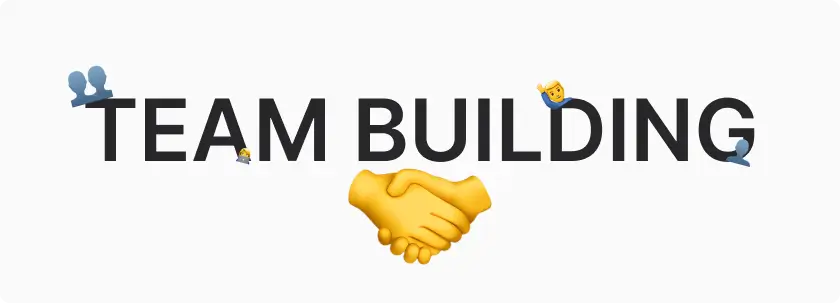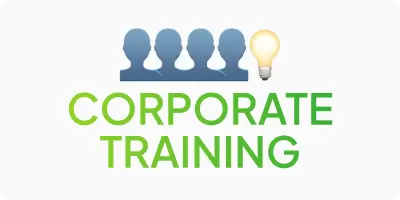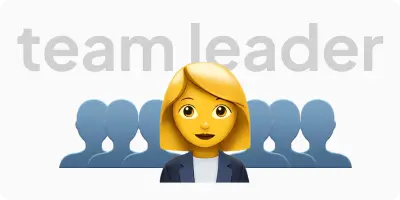
Team building helps build a strong and cohesive team that works together to achieve common goals. Effective team building not only increases efficiency, but also improves communication, increases motivation, and contributes to a positive work environment.
What is team building?
Team building is the process of creating and developing a team through a variety of activities and exercises that improve interaction between team members. These activities can include both formal training and informal activities aimed at strengthening working relationships and increasing team effectiveness.
The main goals of team building
- Reducing barriers to communication: Communication is the foundation of effective teamwork. Team building for work helps to improve both verbal and non-verbal communication between employees. Reducing barriers to communication avoids misunderstandings and promotes open exchange of information.
- Open dialog: Exercises and activities that encourage discussion and feedback help create an atmosphere of openness and trust. This allows employees to freely express their thoughts and ideas.
- Building mutual trust: Collaborative activities that require interaction and cooperation help employees understand each other better. This creates a foundation for mutual trust, which is a key element for effective teamwork.
- Support and interaction: Team building activities for work helps to create an atmosphere of support and mutual assistance within the team. When employees feel that they can rely on their colleagues, it increases their motivation and prevents employee burnout.
- Creating a positive working atmosphere: Team building helps to create a positive and friendly atmosphere in the team. Joint activities and events contribute to the formation of a sense of belonging to the team, which increases employee motivation.
- Optimization of work processes: Exercises aimed at analyzing and optimizing workflows help identify weaknesses and find ways to improve them. This increases the overall efficiency of the team.
What are the formats of team building?

Office team building events
- Communication training: Aimed at improving communication skills, active listening, and information sharing. May include role-playing games, discussions, and interaction exercises.
- Leadership training: Help to develop leadership, management and decision-making skills. Simulations and case studies are used to practice skills.
- Quest games: Tasks that require teamwork and help improve communication, collaboration, and logical thinking. They can be held both indoors and outdoors.
- Brainstorming sessions: Exercises to generate ideas and find solutions. Help to develop creative thinking and teamwork.
- Classic board games: Chess, monopoly, jungle, and other games that help to relax and improve interaction between employees.
- Problem-solving games: Games that include tasks and puzzles that require a team approach to solve.
External team building events
- Team sports: Organizing a soccer or volleyball tournament between company departments, where each team competes for the main prize.
- Relay races and competitions: Holding a corporate Olympics where employees compete in various sports disciplines, such as running, jumping, and throwing a ball.
- Picnics and barbecues: Organizing an outdoor barbecue where employees can enjoy a meal, play volleyball or badminton, and engage in informal discussions.
- Hikes and excursions: A joint hike in the mountains or an excursion to historical sites where the team can spend time together, enjoying nature and developing team spirit.
- Culinary master classes: “Chef for a Day” is a cooking workshop led by a professional chef where employees prepare dinner together.
- Creative workshops: “Art Studio” is a drawing workshop where everyone can create their own painting under the guidance of an artist.
Virtual team building events
- Online quests: Virtual quests that require cooperation and communication to solve tasks.
- Virtual quizzes: Interactive quizzes with questions on various topics conducted via video conferencing.
- Online training on communication and leadership: Virtual sessions aimed at developing communication, leadership and collaboration skills.
- Webinars and online seminars: Topical webinars with experts to help improve professional skills and teamwork.
- Online coffee breaks: Regular informal meetings via video conferencing where employees can socialize, discuss informal topics, and get to know each other better.
- Virtual parties: Online events such as virtual parties, games, and entertainment that help strengthen team bonds.
Tips for organizing a successful team building event
- Set clear goals and expectations for the event. This could be to improve communication, build trust, develop leadership skills, or increase motivation.
- Involve employees in the planning, conduct a survey of what employees want and listen to their opinions.
- Choose the right activity format that suits your team’s interests. Choose activities that are comfortable and fun for all participants.
- Create a friendly and relaxed atmosphere. Team building events are not a work process and employees can communicate on informal topics and enjoy the time spent with colleagues.
- Ensure comfort and safety. Carefully plan all aspects of the event, including logistics, catering, and all necessary equipment. Consider the safety of the event, especially when it comes to sports or outdoor activities.
- Keep all team members actively involved. Avoid situations where someone is left out or does not participate due to certain limitations. Maintain friendliness and mutual respect during all activities.
- Analyze the results and get feedback. After completing team building activities, evaluate their effectiveness. Use surveys, interviews, or other methods to collect feedback. Use the data to improve future events.
Conclusion
Team building is an important process of building team interaction in a company. There are many types of team building activities for work and they are all aimed at creating a cohesive and motivated team that is focused on achieving common goals.
When planning and conducting team building events, it is necessary to take into account the interests of all team members and take care of their involvement in the process and all technical aspects of the event (logistics, food, security, etc.).












